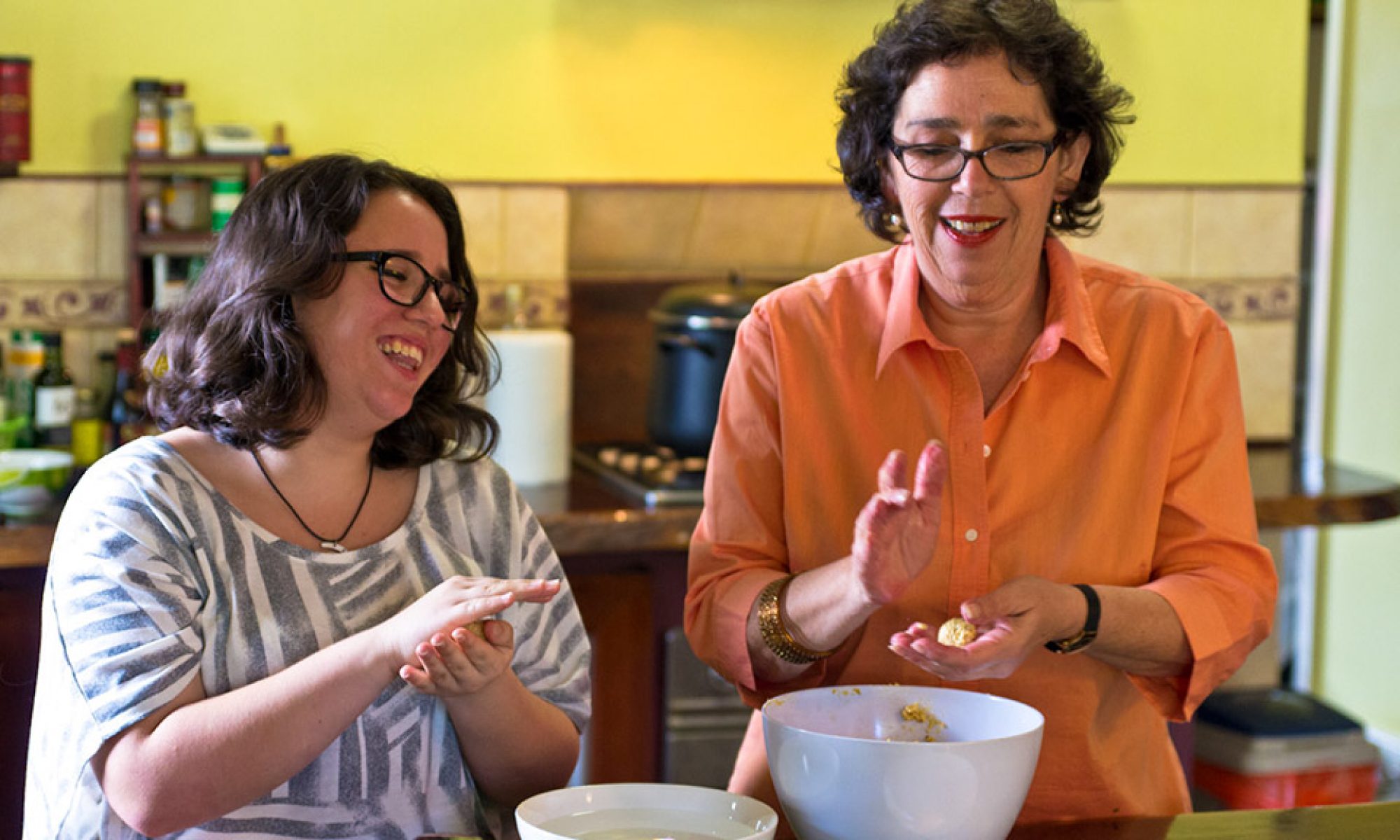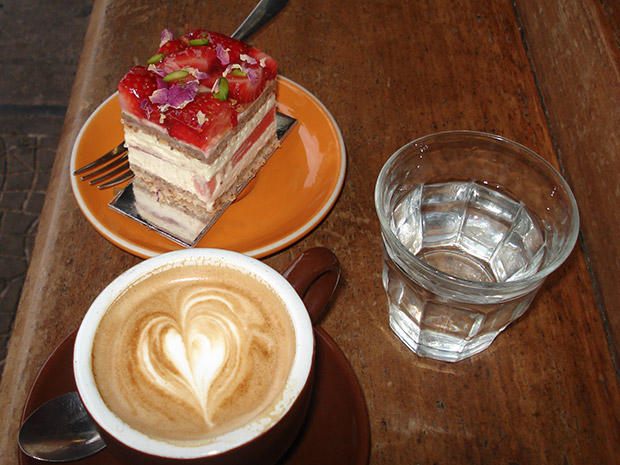Can’t really go overboard with food stories from Sydney as I had little opportunity to eat out. I was there to cook. However I did score a meal at Luke Nguyen’s Red Lantern on Reilly (Street that is).
Took my bro who can be somewhat ambivalent about food, in other words the non-foodie brother, okay the thin one.
First dish was tofu with enoki and inari mushroom in a mild, silky sauce.
That tofu just rocked and we ate it in seconds, followed by lemongrass chicken and crispy chilli prawns. At this stage I have to confess I was sick with some exotic Sydney virus and tasted very little. So why was the less highly spiced tofu the standout dish for me?
I will return with taste buds intact to find out..
The big news was my mother’s 90th birthday – and isn’t that an achievement?
So we had invited her remaining friends and the children of those passed as well as the rest of the Newman clan.
It was held the day after her birthday– on my daughter’s birthday.
So my foodie brother and his long-suffering wife, were the ones hosting the event.
However there remained Mum’s actual birthday – where to take her for lunch but her favourite – Rob’s club. Clubs fascinate me – they are hanging on, relics of the past. Mum’s generation love the cheap food, almost regardless of quality. She was a member of the Jewish comm. Club in Sydney for years – the Hakoah club ad loved the cheap food there, cafeteria style. You got it , my Mum loves sizzler, in fact quantity over quality has always been her mantra. I’m my father’s daughter apparently. At least at this time of life (will own to over 50, go no further) I want quality – perhaps I’ve finally found my inner Jewish princess.

We’d already had a meal there. My sister-in-law was not happy with the salmon, my daughter had the fisherman’s basket – where was the basket? Rob had oysters kipatrick fllowed by a staek with an egg on top. I felt my arteries clog just watching him.
On my second visit I did a foolish thing, ordering the 41,300th lobster mornay.

A kekka as we say in the west – sure it would have been on the 440 g mark but isn’t that too small, really? And as for half? The mornay was, well mornay, Perhaps I ordered it as a homage to the prawn cocktail served at Mum’s Xmas lunch. You just don’t expect retro food in Sydney.
Then to the party.
I love this kind of thing and going shopping and all that and loved doing it with Rob. Sure he objected to many of my plans and told me I was crazy. Yes we argued over junk food. And no we couldn’t do anything about the weather. A hot day was predicted – I would not be heating the sausage rolls in the oven.
So Rob made egg salad, smoked salmon and cream cheese and cucumber sandwiches. We were aspiring to high tea of course. I made humous to prevent Rob buying some ghastly dips from the super market. I also made chopped herring – just like my Mum. In fact Rob interrogated me on this insisting I didn’t know how to make it – an old game. He did have the grace on tasting it to say it was “quite good” in Rob-speak that means excellent.
I also made her sausage rolls – for which I had no recipe other than the pastry so we’re talking cooking from memory and intelligence. And lo, they were good.
Zenna, my beautiful daughter, was responsible for finger sandwiches, also Mum’s recipe – also subject to Robin ‘s interrogation and complaint. No-one complained about the sandwiches which were excellent.
My final thoughts of Sydney the next day at the airport we eat at a noodle bar. I eat a laksa as good as most served in Perth. Here in Perth we have 2 outlets at the domestic airport once you clear security. Both are truly dreadful and of course overpriced. Sigh – Perth get it together!!


